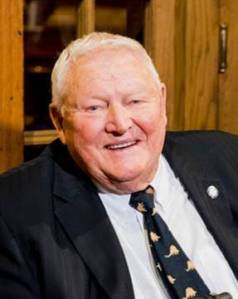Measuring What Matters
by Gene Muchanski, Editor
The Dive Industry Professional
There is an old saying, “What you watch, grows.” And yet, any Chef will tell you that a watched pot never boils. So,who are we to believe? I believe we should take “old sayings” with a grain of salt. In the business world, we need to do more than watch our business. Much more. We need to understand what our business was designed for, what its purpose is, what is does to achieve its goals and objectives, and measure how well it is performing its mission. But it doesn’t end with just measuring our performance. Good business management is about analyzing our performance and modifying our action plan to achieve the results we had originally planned for.
What a Business Does: Businesses sell programs, products, and services for compensation. I know that comes as a shock to all of you who hate business, but the truth is that; The art and science of business is an exchange of something of value between a buyer and a seller. Think about all the companies you know in the diving industry that create, provide, distribute, or resell programs, products, and services. They are all sellers of their wares, looking for people who need, want, and can afford what they are selling. Even non-profit organizations are considered businesses because they provide services in return for donations from donors. In fact, the non-profit industry is BIG Business. Same thing with Colleges and Universities. They are in the business of educating our students and consulting our businesses. So business is a good thing because it provides a valuable service to its customers while providing jobs for our population. But even if a business is not totally focused on profit above all else, it needs to operate sensibly enough to stay in business in order to continue to perform its purpose and mission for its people.
Purpose & Mission of a Business: We know that businesses have a purpose, and they execute that purpose by performing their mission. We can safely say that business owners define the purpose of their business, and they hire management to define and execute their mission. A good owner needs to do the right things, and a good manager needs to do things right. The company management hires employees to do the work that needs to be done in accordance with the purpose and mission of the company.
A Five-Point Strategy for Successful Business Management: Good businesses plan their operational strategy and execute their strategy as planned. (Plan Your Dive – Dive Your Plan). Sometimes it brings in the results that were anticipated, sometimes it does not. Here is our recommended 5-point strategy for completing your company mission. 1) Be aware of your situation. 2) Educate your owners, directors, management, and employees. 3) Plan your strategy based on your available options. 4) Execute your plan using the best business tools and marketing technologies available. 5) Review and analyze your outcomes and revise as necessary.
Awareness: Dive Industry Professionals need to be aware of what they are doing from a business perspective as well as from a diving perspective. First of all, you have to be aware of all diving related subjects that pertain to your specialty. That could be manufacturing, retailing, instruction, travel, or non-profit management. Second, on your list of awareness should be the diving industry and its niche market. Last, but certainly not least, is your awareness of the art and science of business. If you are going to be in business, selling what you love, you have to know how to run a business. Allow me to drive this point home for you. In the 50 years I have been studying the Retail Dive Store industry, I have compiled data on over 4,000 dive stores in the United States that have opened for business at one time or another. Our current count of dive stores open for business in the U.S. is approximately 900 dive stores.
Education: Education and Experience go hand in hand. The more education you start with, the more likely you are to avoid the pitfalls of experience. Or so they say. This should not be a difficult concept for scuba instructors to appreciate. Most of us learned to dive from a certified instructor before we started diving on our own. Educating divers before allowing them to dive or purchase diving equipment has made our recreation as safe as it could be. It should be that way for aspiring business owners too.
Planning: It’s foolish to romanticize winging it or flying by the seat of your pants when it comes to operating life support equipment in a potentially dangerous environment. That goes double for starting a business. Especially a business in a small niche market, with low or declining revenues and a declining client base! Good planning is a wise thing to do if you want to increase your odds for success in this market. I have always preached that it is better to plan your business start-up on paper before you invest your hard-earned time, money, and manpower in a business enterprise. Good planning will make you aware of what you are getting into, and it will teach you what you need to know beforehand. Not everything, but more than if you didn’t do any planning. I’ve always said that it doesn’t cost anything to fail on paper, but a real-time business loss can be devastating.
Action: With a good written plan in front of you, blazing new trails is less intimidating and more inviting. Especially if you have an experienced businessperson on your team that has been there and done that before. More than once is even better. A good Action Plan may help you hit the ground running in business and give you increased motivation and perhaps some degree of a competitive edge. I know that some of my military peers would say that every battle plan goes out the window at the sign of first conflict, but we’ll leave that discussion for another day. The whole reason for creating a good action plan is to increase your chances of success by contemplating as many likely scenarios as possible before actually going into business.
This is the point where most good managers stop. Awareness-Education-Planning-Action. Now, let me tell you about Step 5, where all the magic happens. It reminds me of the “Missing Chapter” of the business planning book that only Great Managers read. This step that brings all of your work out in the open, where you can see the cause and effect of your actions, and where you can see improvement and success happening at every turn. It’s called:
Review, Analyze, & Revise: Step 5 is where the rubber meets the road. It’s the step that transports you from theory to reality. It’s the point where academia meets real business. It’s the point where you will find great business leaders getting things done. It’s the point where you need to be.
Begin to Collect Data: Step 5 is all about analyzing the outcomes that are created by what your business does. Before we begin to analyze everything we do in business, we have to determine what is important to us. Every industry is different and every business within an industry may have different things that are important to them. Start with your business purpose. What does your business do? What brings in your greatest source of revenue? If you teach diving classes, start to collect data on the types of courses you teach and the number of students you enroll in each class. I would label this “Sales in Units.” Next, I would record the dollars brought in from teaching these courses. Call this “Sales in Dollars.” If there are direct costs involved in these courses, record the data as “Cost of Units Sold.” Now you are in a position to plan your sales strategy, to increase or decrease activity. Decide how you are going to accomplish your strategy, give it a time limit, and then analyze the results from your campaign. You can do the same thing for tracking sales, dive trips, charter dives, club members, etc. Whatever is important to you, and your business needs to be tracked, recorded, reviewed, analyzed, and revised as necessary.
I have been recording our daily sales for years. We usually compare this year’s gross sales to those of last year. At any point in time, I can tell you if we are up or down in sales and by what percentage. We’ve outgrown the lazy response of better, the same, or worse than last year! Our company has been tracking exhibitors at dive shows and trade expos for 20 years. We can tell just by looking at our graphs, which shows are heading for extinction. You don’t need a crystal ball to tell which shows & events are not analyzing their exhibitor data.
To stress the importance of recording your activity and using it to increase your awareness, education, planning, and action strategy, let’s look at a simple weight management exercise. Rather than have a goal of “weight loss”, let’s make our goal “healthy weight management.” Our awareness starts off by knowing that weight management is simply “calories in minus calories out.” In other words, if you consume more calories than you use, you gain weight. If you consume less calories than you burn, you lose weight. We start off by increasing our awareness of food and activity. That leads to our education about food and exercise, which helps in our planning a strategy of eating less calories than we burn, if we want to lose weight. To be successful at this exercise we have to record everything we eat and record all of our physical activities. (This is an over-simplification). The magic happens as we enter Step 5 to record what is important to us. We learn about calories, carbs, proteins, etc. and we learn about various forms of activity that burn the calories we consume. The more we learn, and the better we get at planning our strategy, the more our actions will produce outcomes that result in weight loss and other benefits. You can actually get to a point where you are simply “tweaking” variables and components to your action plan when you are in Step 5. An additional positive outcome from a healthy weight management program is that you may realize additional benefits that correlate to a balanced blood chemistry level. (Again, an over simplification).
My whole point is that business activity has a cause and effect on outcomes that are produced by your strategy. By measuring the results of your action plan and analyzing the data, you can fine tune your planned outcomes for maximum effectiveness. If you are a good manager who wants to be a great manager, you’ll find what you desire in Step 5.
For more information about the Global Diving Business Network, contact Gene Muchanski, Executive Director of the Dive Industry Association, 2294 Botanica Circle, West Melbourne, FL 32904. Phone: 321-914-3778. Email: gene@diveindustry.net Web: www.diveindustry.net Ask about our Dive Industry Marketing & Consulting Services.
# # #

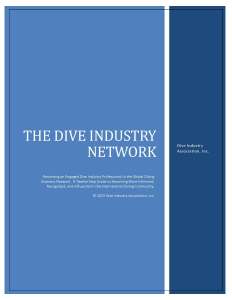




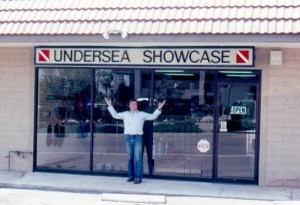
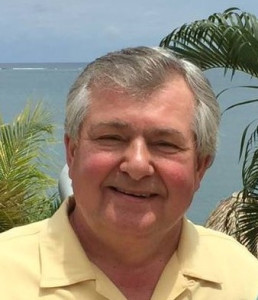



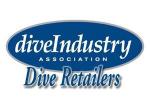

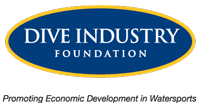
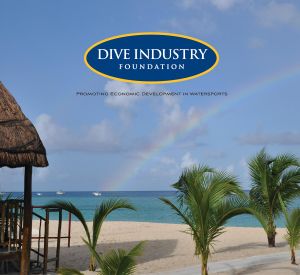 Preserving Our Diving History
Preserving Our Diving History